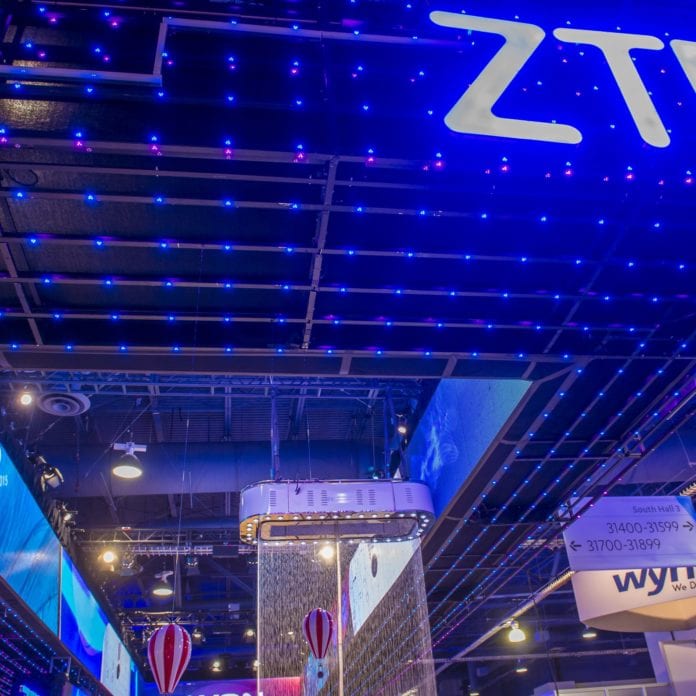Department of Commerce says the ban on ZTE will last until March 2025
The U.S. Department of Commerce has banned American companies from selling telecommunications equipment to Chinese vendor ZTE after the firm allegedly did not live up to the terms of an agreement that had been worked out after it illegally shipped telecom equipment to Iran and North Korea.
The government’s order, which goes into effect immediately, will ban American firms from exporting components directly to ZTE or through a third country until March 13, 2025.
In March 2017, ZTE agreed to a combined civil and criminal penalty and forfeiture of $1.19 billion after illegally shipping telecommunications equipment to Iran and North Korea, making false statements, and obstructing justice including through preventing disclosure to and affirmatively misleading the U.S. Government, the Department of Commerce said. In addition to the financial penalties, ZTE also agreed to a seven-year suspended denial of export privileges, which could be activated if the company continued to violate U.S. export regulations or if any part of the agreement was not met.
Part of the deal was that ZTE would reprimand and deny bonuses to the employees who had acted illegally, but the Department of Commerce says that instead, ZTE paid full bonuses to employees that had engaged in illegal conduct and failed to issue letters of reprimand. The Department of Commerce said that it has now determined the Chinese vendor made false statements to the DOC’s Bureau of Industry and Security (BIS) in 2016, during settlement negotiations, and 2017, during the probationary period, related to senior employee disciplinary actions the company said it was taking or had already taken.
“ZTE made false statements to the U.S. government when they were originally caught and put on the Entity List, made false statements during the reprieve it was given, and made false statements again during its probation,” Secretary of Commerce Wilbur Ross said in a statement.
ZTE’s false statements only were reported to the U.S. authorities after BIS requested information and documentation showing that employee discipline had occurred, the Department of Commerce said.
“ZTE misled the Department of Commerce. Instead of reprimanding ZTE staff and senior management, ZTE rewarded them. This egregious behavior cannot be ignored,” Secretary Ross said.
Some of the providers affected by the ban include Qualcomm and Dolby. According to a report by Earl Lum, of EJL Wireless Research, the ban represents a huge impact for ZTE’s wireless business. “ZTE’s wireless business is dead in the water if the company cannot convince the U.S. government to reconsider its export ban,” Lum said. “The Chinese company’s radio units, wireless base stations and smartphones all rely on U.S. components that ZTE will not be able to replace in time to meet shipment schedules and fulfill its commitments to customers.”
ZTE said it was still assessing the implications of the ban, while the Chinese government said it will work to protect the interests of Chinese firms. “The Chinese government will closely track the case and is ready to take necessary measures to protect the legitimate rights and interests of Chinese companies,” Chinese press reported a government spokesperson as saying.
ZTE has extensive trade and investment cooperation with hundreds of U.S. companies, creating tens of thousands of jobs in the United States, the spokesperson said.
“China has consistently asked Chinese companies to comply with the laws and policies of host countries and manage their businesses in line with laws and regulations,” the spokesperson added.

